Middle East
Sudan ‘horror knows no bounds’, says UN, as deaths in Darfur rise | Sudan war News
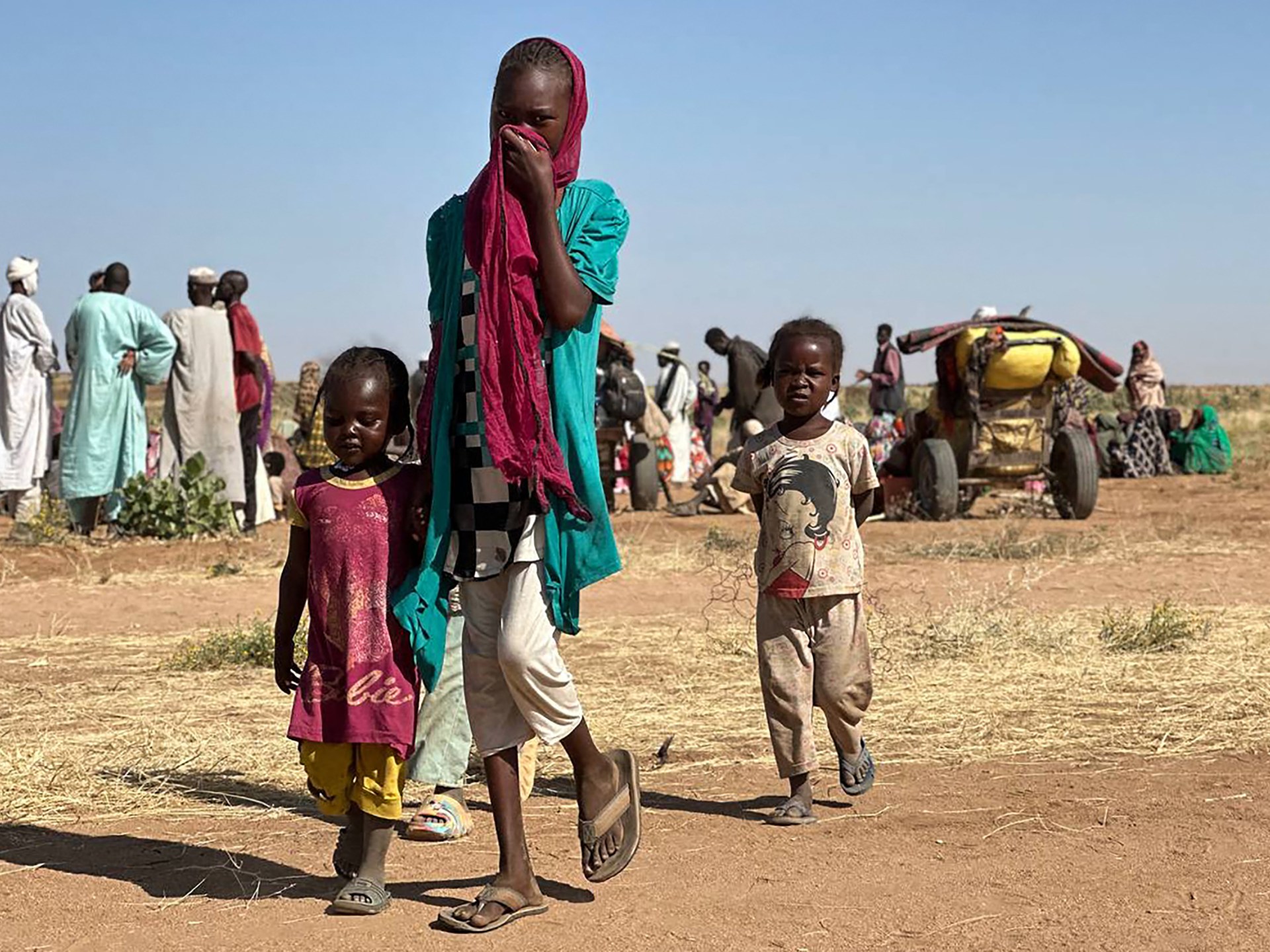
UN rights chief says civilians ‘trapped in dire conditions’ in and around el-Fasher as RSF warns of further ‘bloodshed’.
More than 540 people have been killed in Sudan’s North Darfur in just three weeks as paramilitaries intensify their attritional battle for the regional capital of el-Fasher, according to the United Nations.
“The horror unfolding in Sudan knows no bounds,” said Volker Turk, the UN high commissioner for human rights, in a statement on the devastating impact of the two-year civil war published on Thursday, signalling that the death toll of 542 over the past three weeks was likely “much higher”.
Darfur in particular has been a key battleground in the brutal war that erupted in April 2023 between the Sudanese Armed Forces (SAF) and the paramilitary Rapid Support Forces (RSF), which has left tens of thousands dead, uprooted more than 12 million and created what the UN describes as the world’s worst humanitarian crisis.
The RSF, which lost Khartoum last month, has in recent weeks mounted multiple attacks on el-Fasher and the nearby refugee camps of Zamzam and Abu Shouk, triggering an exodus of hundreds of thousands of people 60km (37 miles) across the desert to the town of Tawila.
Sudan’s presidential palace in central Khartoum was shelled Thursday by the RSF, a military source told the AFP news agency, the second such attack on the capital in a week.
Turk pointed to a new attack three days ago by the RSF on el-Fasher and Abu Shouk that killed at least 40 civilians.
He said he feared further violence after the RSF issued a warning of further “bloodshed” ahead of “imminent battles”, adding that civilians “trapped amid dire conditions” in and around el-Fasher needed to be protected.
Turk’s statement came as the RSF was on the cusp of seizing control of the strategic city of al-Nahud in West Kordofan, a gateway to the Darfur region, held by Sudan’s army since the start of the conflict.
Reporting from Khartoum, Al Jazeera’s Hiba Morgan said that both sides viewed the city as crucial for gaining the upper hand in the conflict.
“It’s clear that the RSF does not want the army to try to launch attacks on its positions in Darfur, especially since the army has been saying that it wants to retake cities in Darfur … and they want to break the RSF’s siege of el-Fasher,” she said.
‘Extremely disturbing’
Turk also highlighted “reports of extrajudicial executions in Khartoum state”, which he described as “extremely disturbing”.
He described videos circulating on social media that showed at least 30 men in civilian clothing being rounded up and shot by armed men in RSF uniforms in the al-Salha area in the country’s second-largest city, Omdurman.
In a subsequent video “an RSF field commander acknowledged the killings”, he said.
The videos followed “shocking reports” of the “extrajudicial execution of dozens of people accused of collaborating with the RSF in southern Khartoum in recent weeks”, which had allegedly been committed by the Al-Baraa Bin Malik Brigade, a pro-SAF armed rebel group, according to Turk.
The conflict between SAF, led by Abdel Fattah al-Burhan, and the RSF’s Mohamed Hamdan “Hemedti” Daglo has divided Sudan in two, with the army holding sway in the north and east, while the RSF controls most of Darfur and parts of the south.
Turk said he had alerted both leaders to the “catastrophic human rights consequences” of the war, saying it was “well past time for this conflict to stop”.
Middle East
Syrian Druze leader condemns government over sectarian violence | News
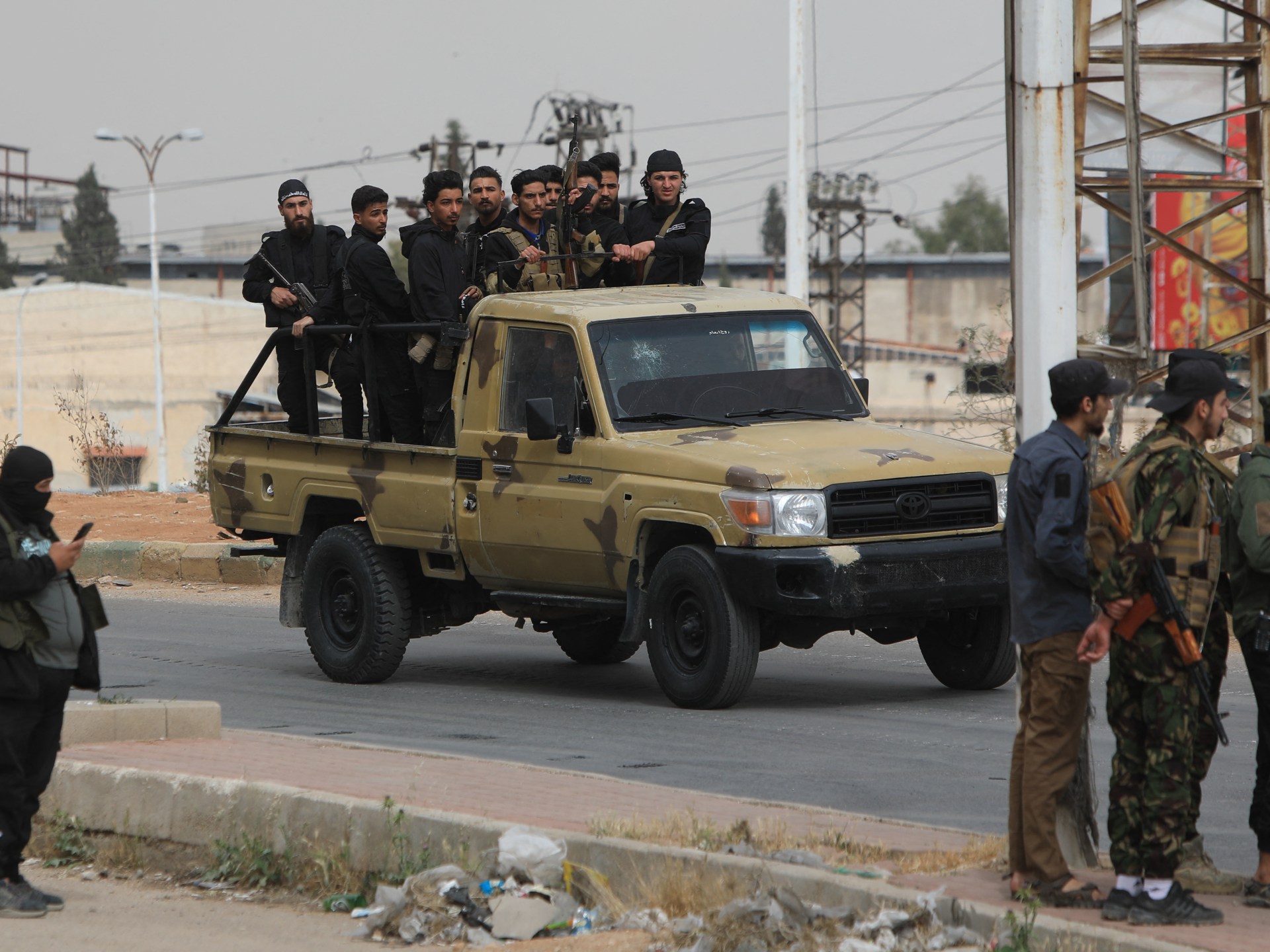
Syrian Druze leader condemns ‘genocidal campaign’ after dozens killed in clashes south of Damascus.
A leader of Syria’s Druze minority has condemned attacks against his community after dozens of people were killed in two days of sectarian clashes south of Damascus.
Sheikh Hikmat al-Hijri on Thursday denounced the violence in Jaramana and Sahnaya near Damascus earlier this week as a “genocidal campaign” against the Druze community in Syria.
Syria’s Ministry of Information said 11 members of the country’s security forces were killed in two separate attacks.
The United Kingdom-based Syrian Observatory for Human Rights (SOHR), a war monitor, said at least 101 people were killed in fighting between security forces, allied fighters and local Druze groups.
The SOHR, which relies on a network of sources in Syria, said the death toll included 30 government loyalists, 21 Druze fighters and 10 civilians, including Sahnaya’s former mayor, Husam Warwar.
In the southern province of Sweida, heartland of the Druze minority, it said 40 Druze fighters were killed, 35 in an “ambush” on the Sweida-Damascus road on Wednesday.
The clashes broke out around midnight Monday after an audio clip circulated on social media of a man criticising Islam’s Prophet Muhammad. The audio was attributed to a Druze scholar. But the scholar, Marwan Kiwan, said in a video posted on social media that he was not responsible for the audio, which angered many Sunni Muslims.
On Wednesday afternoon, the Syrian government said a deal was reached between Druze dignitaries and official representatives after which security forces and pro-government fighters entered Sahnaya and Druze gunmen withdrew from the streets.
Videos on social media showed what appeared to be pro-government armed groups beating Druze men they had captured in Sahnaya and making offensive sectarian remarks.
“This collective killing is systematic, clear, visible, and documented,” read al-Hijri’s statement. “We no longer trust a group that calls itself a government, because the government doesn’t kill its own people through extremist gangs that are loyal to it, and after the massacre claims they are loose forces.”
The violence poses a serious challenge to the country’s new authorities, who toppled longtime ruler Bashar al-Assad in December. It comes after a wave of massacres in March in Syria’s Alawite heartland on the Mediterranean coast in which security forces and allied groups killed more than 1,700 civilians, mostly Alawite, according to the SOHR.
Syrian authorities reject foreign intervention
Israeli officials have expressed support for the Druze, with Defence Minister Israel Katz warning his country would respond “with significant force” if Syria’s new authorities fail to protect the minority community.
In a later statement, Katz said, “Should the attacks on the Druze resume and the Syrian regime fail to prevent them, Israel will respond with significant force.”
Foreign Minister Asaad al-Shaibani on Thursday reiterated Syria’s rejection of demands for international intervention, posting on X that “national unity is the solid foundation for any process of stability or revival”.
“Any call for external intervention, under any pretext or slogan, only leads to further deterioration and division,” he added.
Most Druze spiritual leaders and factions have opted to air their grievances in closed communication with the new government, but concerns have heightened after a crackdown on al-Assad loyalists in Syria’s coastal province turned into a series of targeted revenge attacks against the Alawite minority group.
Videos widely circulated of houses burned down and bloodied bodies of Alawite on the streets. Tens of thousands of Alawite fled south to neighbouring Lebanon, and many are too scared to return.
The Druze have since become reluctant to lay down their arms, which they say they need for protection.
Middle East
Why are relations between Algeria and France so bad? | Politics News
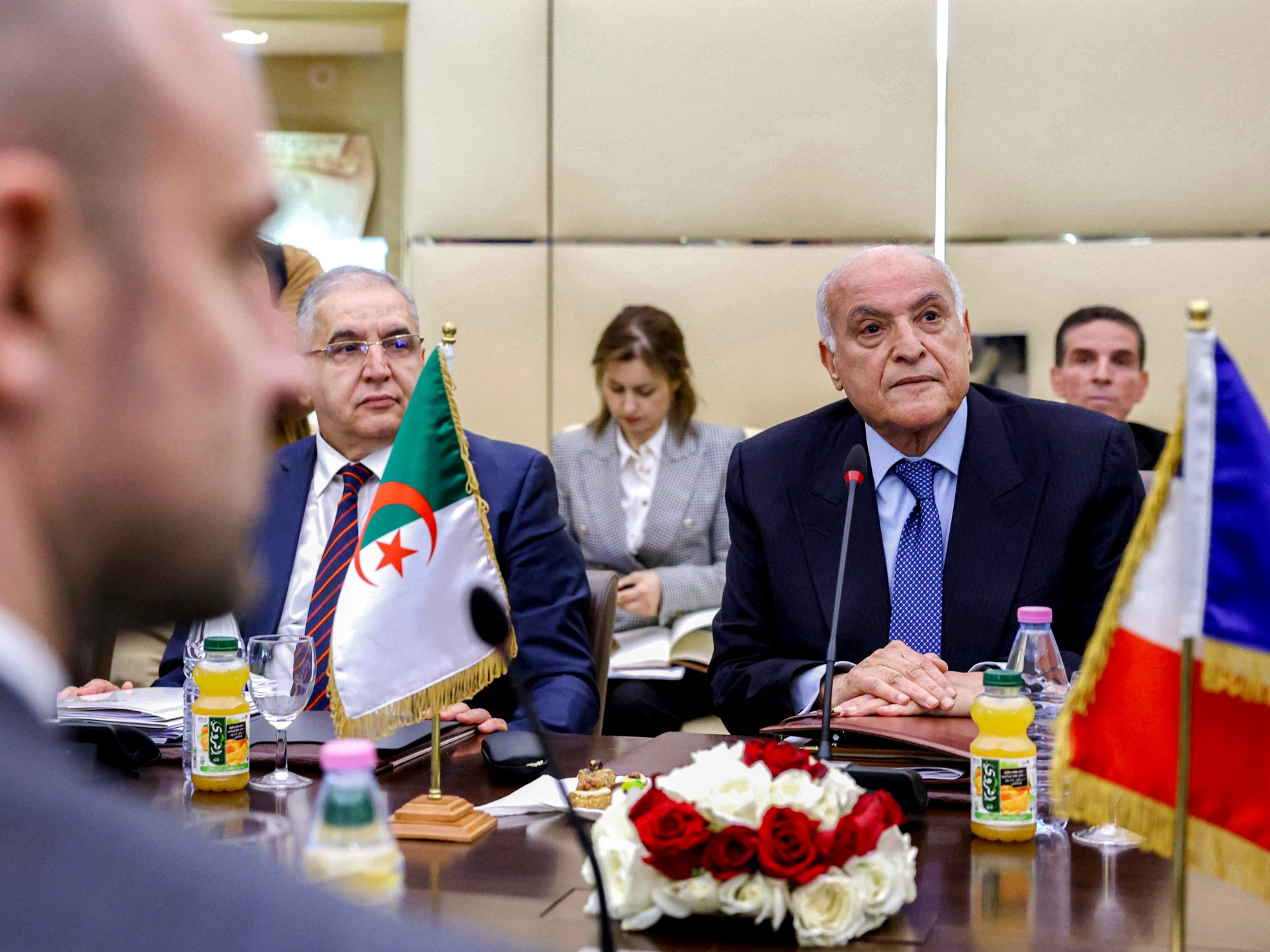
Relations between Algeria and its former coloniser, France, have rarely been straightforward.
After hitting a low point in July when France supported Algeria’s regional rival Morocco over its claim to the disputed territory of the Western Sahara, relations appeared to be recovering.
But then the April arrest in France of an Algerian consular official along with two other men for alleged involvement in the kidnapping near Paris of Algerian government critic Amir Boukhors has triggered a new wave of tensions.
So why are diplomats now being expelled, and what does this mean for relations between Algeria and its former coloniser?
Let’s break it down:
Who is Amir Boukhors?
Boukhors, or Amir DZ, is an Algerian online influencer and critic of Algerian President Abdelmadjid Tebboune with more than 1 million subscribers on TikTok.
The French government gave Boukhors political asylum in 2023.
But as far as the Algerian government is concerned, he’s a fraudster and a “terrorist”, who they’ve been seeking to extradite from France since 2016.
Algeria has tried to extradite Boukhors nine times. All attempts have been declined by France.
Why would an Algerian consular official allegedly want to kidnap him?
Speaking to the newspaper Le Parisien in an interview published on April 9, Boukhors said that on returning to his home in Val-de-Marne near Paris during the evening of April 29, 2024, he was stopped by an unmarked car with flashing lights.
Four men in civilian clothes handcuffed him and threw him into the vehicle.
“They first told me that an Algerian official wanted to talk to me, that that was why they were taking me. Then they told me the plan had changed and that I was going to Amsterdam,” Boukhors told the newspaper.
Boukhors said he was then forced to swallow sleeping pills and was held in a “container” for more than 27 hours before being released without explanation.
A subsequent investigation by France’s counterespionage agency uncovered information leading to the arrest on April 11 of three men with a fourth still reportedly at large.

No information has been released about two of the men. However, the third was an Algerian consular employee, French officials said.
Algeria issued a statement the following day strongly denying its official’s involvement and protesting the person’s arrest “in public … without notification through the diplomatic channels”.
The statement denounced what it charged was a “far-fetched argument” based “on the sole fact that the accused consular officer’s mobile phone was allegedly located around the home” of Boukhors.
All three suspects were later charged with “kidnapping or arbitrary detention … in connection with a terrorist undertaking”.
What was the diplomatic response?
On April 14, Algeria announced that 12 French consular officials had 48 hours to leave the country.
The statement, read on public television, confirmed the expulsions had been ordered in response to France’s arrest of the Algerian official.
According to the statement, the arrest had been intended to “humiliate Algeria, with no consideration for the consular status of this agent, disregarding all diplomatic customs and practices”.
France responded in kind the following day, expelling 12 Algerian consular officials from its territory and recalling its ambassador from Algiers.
A statement from the office of French President Emmanuel Macron described the Algerian decision as “incomprehensible and unjustified” and said Algiers should “resume dialogue” and “take responsibility for the degradation in bilateral relations”.
Why have relations between France and Algeria historically been poor?
France colonised Algeria for 132 years, killing Algerian civilians and creating a class structure in which European settlers and their descendants were on top.
The French refused to leave Algeria, considering it an integral part of France. It was only after a war of independence that France finally left in 1962. Algeria is still referred to as the “country of a million martyrs” because of the number of people killed by France during the fight for independence.
But the dispute has not ended there. The issue of the Western Sahara is also causing tension, not just between France and Algeria but also across North Africa.
Western Sahara – a disputed territory in northwestern Africa – is at the centre of the poor relations between Algeria and Morocco. Rabat claims the territory as its own and occupies the majority of it while Algeria supports the pro-independence Polisario Front and has taken in tens of thousands of Sahrawi refugees.
What has France’s position on the Western Sahara been?
France has largely backed Morocco – despite the United Nations not recognising Rabat’s sovereignty over the Western Sahara. And last year, Macron said France’s position was that it supported Moroccan sovereignty over Western Sahara.
At the time, Algeria voiced its “deep disapproval” of France’s “unexpected, ill-timed and counterproductive” decision to endorse Morocco’s autonomy plan for Western Sahara and recalled its ambassador.
However, relations between the two were thought to be improving since then.
Speaking in early April after a series of talks intended to restore relations after the rift, French Foreign Minister Jean-Noel Barrot said: “We are reactivating as of today all the mechanisms of cooperation in all sectors. We are going back to normal and to repeat the words of President Tebboune: ‘The curtain is lifted.’”
But the Boukhors case and the diplomatic expulsions that have followed it have made it clear that the curtain has fallen right back down.
Middle East
Al Jazeera wins two Peabody Awards for documentaries on Gaza war carnage | Gaza News
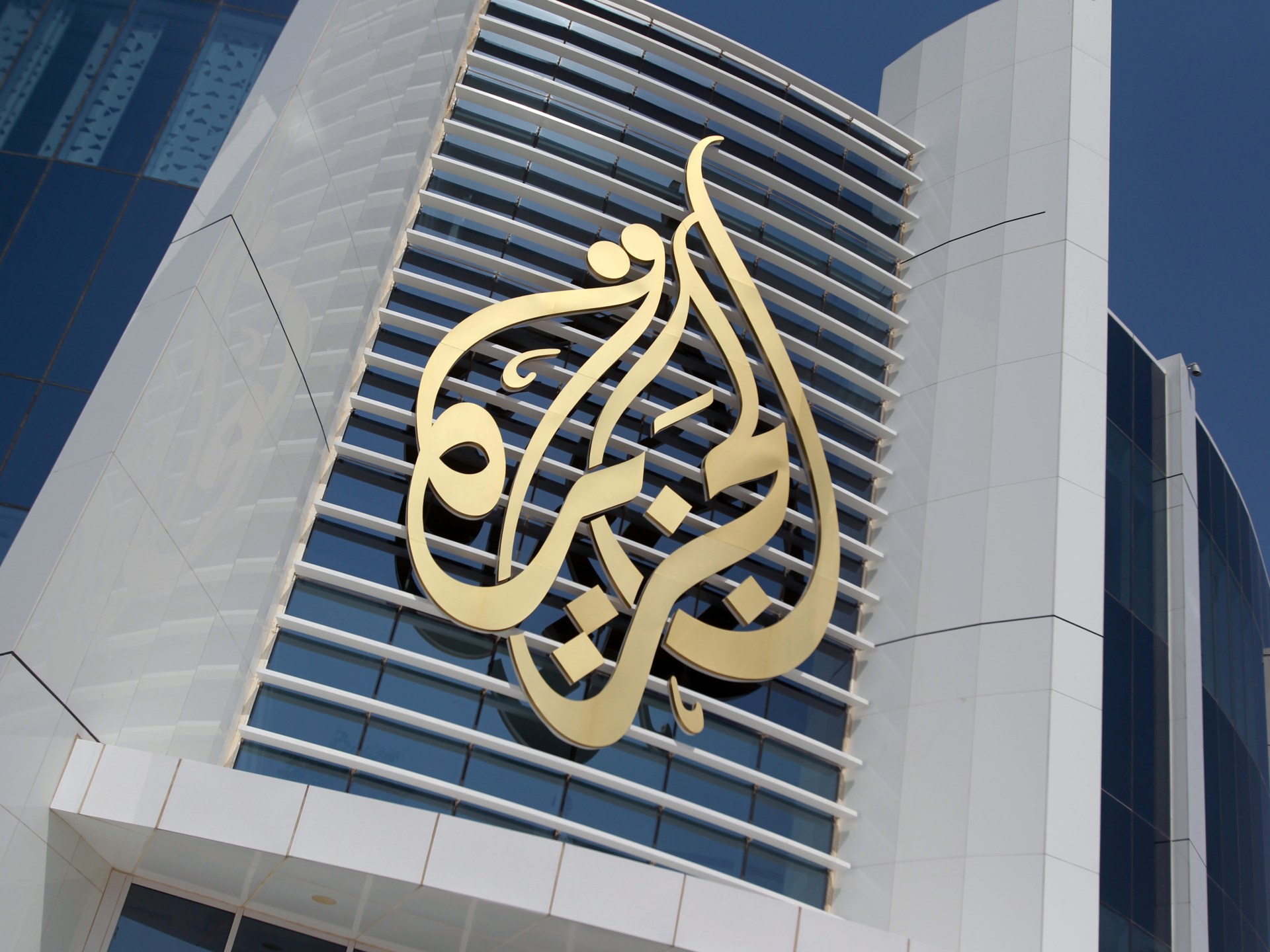
Fault Lines wins in News & Documentary category while Close Up wins in Interactive & Immersive category.
Al Jazeera Media Network has been honoured with two prestigious Peabody Awards, one of the most esteemed accolades in broadcast storytelling.
The awards recognise the Al Jazeera English Fault Lines documentary The Night Won’t End in the News & Documentary category, and the Al Jazeera English Digital film One Day in Gaza from the series Close Up, in the Interactive & Immersive category.
The 85th annual Peabody award winners were announced on May 1, 2025, in advance of its annual ceremony in Los Angeles on June 1, 2025.
The awards honour intelligent, powerful and moving stories told in broadcast and digital media.
Al Jazeera English’s Fault Lines documentary The Night Won’t End uncovers the tragic human cost of war. It depicts the realities of the unrelenting Israeli bombing campaign on Gaza, the unsafe “safe zones,” and arbitrary executions through the eyes of three families during the initial 15 months of the war.
The film investigates the death of five-year-old Hind Rajab, who was waiting to be rescued from a car where her family members had already been shot dead. Two medics dispatched to rescue her were also killed, as verified by a forensic watchdog agency.
Laila Al-Arian, executive producer of Fault Lines, stated, “No single piece can fully capture the scale of the atrocities in Gaza, but we aimed through investigative journalism and on-the-ground storytelling to offer a glimpse of what life has been like. We are honoured by this recognition because it helps bring more attention to a continuing story the world needs to see. Though we filmed this over a year ago, the horrors we documented remain a daily reality for more than 2 million Palestinians in Gaza.”
To date, The Night Won’t End has garnered multiple awards, including in the coveted International Current Affairs category at the Royal Television Society Awards in the United Kingdom, the Overseas Press Club prize for best TV, video or documentary about international affairs, and the long-form award from the Centre for Information Resilience Open-Source Film Awards.
The One Day in Gaza film from the series Close Up is a compilation of videos recorded by 10 individuals in Gaza, who were asked to document moments throughout their day, thereby helping viewers understand the immense hardships and constant dangers faced by Palestinians living under the constant bombardment in Gaza.
Juan Carlos Van Meek, director of digital innovation and programming, expressed his gratitude for awarding the team the Peabody Award, stating, “I am immensely proud of our team’s relentless efforts in amplifying the humanity of Palestinians living in Gaza under constant bombardment. Through the brave voices of people on the ground, we have captivated millions of viewers and helped sustain global attention on the ongoing genocide, ensuring their stories are not forgotten.”
The recognition of these documentaries underscores Al Jazeera’s commitment to highlighting the profound human experiences amid conflict.
As the situation in Gaza continues to unfold, The Network remains dedicated to shedding light on the stories that matter, ensuring that the voices of those affected are heard on a global platform.
-
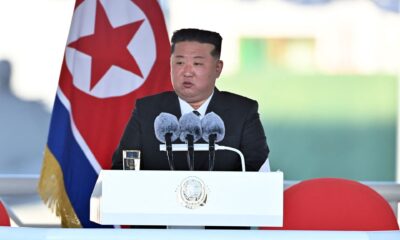
 Conflict Zones2 days ago
Conflict Zones2 days agoAbout 600 North Korean soldiers killed in war in Ukraine, lawmakers say | Russia-Ukraine war News
-
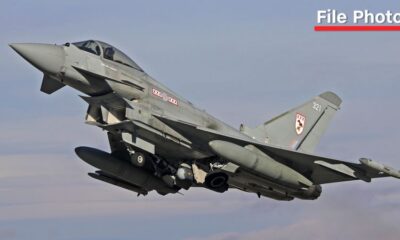
 Europe2 days ago
Europe2 days agoSanaa, Yemen: UK launches strikes against Houthis, in first joint US operation under Trump
-

 Sports2 days ago
Sports2 days agoMaya Merhige: American teenager withstood thousands of jellyfish stings during a 14-hour swim across the Cook Strait
-
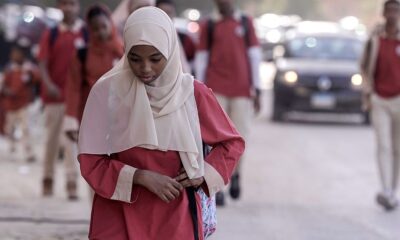
 Africa2 days ago
Africa2 days agoThousands displaced by Sudan war return home from Egypt
-
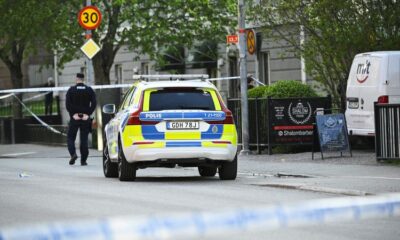
 Europe2 days ago
Europe2 days ago16-year-old suspect detained after 3 killed in shooting in Sweden
-
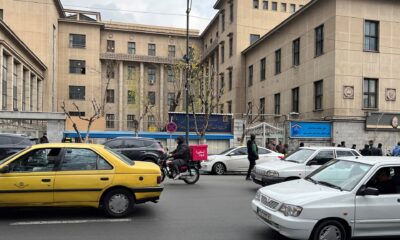
 Middle East2 days ago
Middle East2 days agoIran hangs man convicted of spying for Israel’s Mossad | Espionage News
-
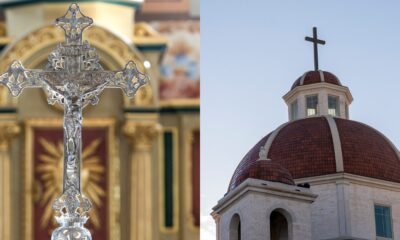
 Education2 days ago
Education2 days agoSupreme Court considers endorsing country’s first religious public charter school
-

 Europe2 days ago
Europe2 days agoA 400-year-old tea and coffee shop faces closure in Amsterdam as tourism stokes price rises




